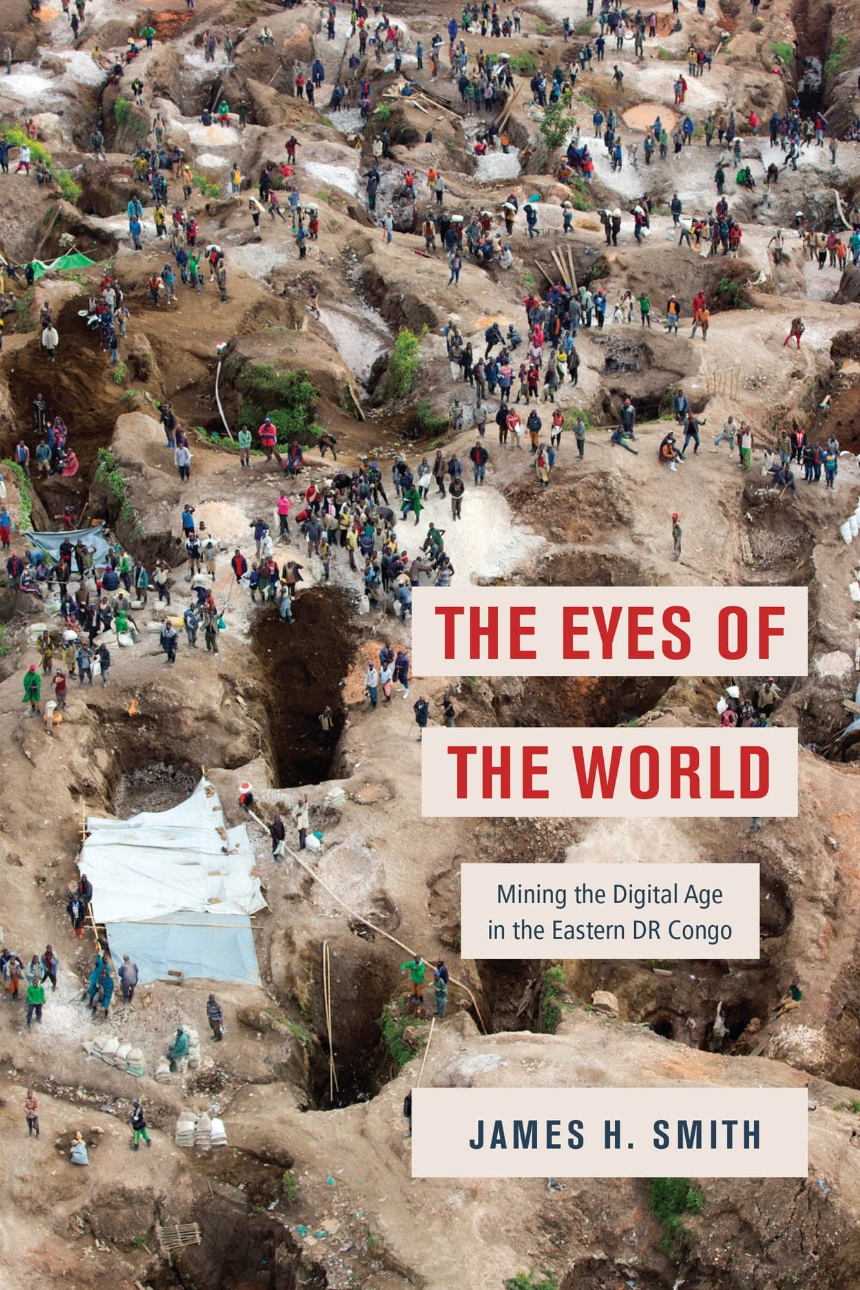The Eyes of the World
Mining the Digital Age in the Eastern DR Congo
The Eyes of the World
Mining the Digital Age in the Eastern DR Congo
The digital devices that, many would argue, define this era exist not only because of Silicon Valley innovations but also because of a burgeoning trade in dense, artisanally mined substances like tantalum, tin, and tungsten. In the tentatively postwar Eastern DR Congo, where many lives have been reoriented around artisanal mining, these minerals are socially dense, fueling movement and innovative collaborations that encompass diverse actors, geographies, temporalities, and dimensions. Focusing on the miners and traders of some of these “digital minerals,” The Eyes of the World examines how Eastern Congolese understand the work in which they are engaged, the forces pitted against them, and the complicated process through which substances in the earth and forest are converted into commodified resources. Smith shows how violent dispossession has fueled a bottom-up social theory that valorizes movement and collaboration—one that directly confronts both private mining companies and the tracking initiatives implemented by international companies aspiring to ensure that the minerals in digital devices are purified of blood.
360 pages | 12 halftones | 6 x 9 | © 2022
Anthropology: Cultural and Social Anthropology
Economics and Business: Business--Industry and Labor, Economics--Agriculture and Natural Resources
Reviews
Table of Contents
Prologue: An Introduction to the Personal, Methodological, and Spatiotemporal Scales of the Project
1. The Eyes of the World: Themes of Movement, Visualization, and (Dis)embodiment in Congolese Digital Minerals Extraction (an Introduction)
Part Two: Mining Worlds
2. War Stories: Seeing the World through War
3. The Magic Chain: Interdimensional Movement in the Supply Chain for the “Black Minerals”
4. Mining Futures in the Ruins
Part Three: The Eyes of the World on Bisie and the Game of Tags
5. Bisie during the Time of Movement
6. Insects of the Forest
7. The Battle of Bisie
8. Closure
9. Game of Tags: Supply Chain Auditing as Purification Project
Conclusion: Chains, Holes, and Wormholes
Acknowledgments
Notes
Bibliography
Index
Awards
Royal Anthropological Institute: Amaury Talbot Prize
Special Commendation
Society for the Anthropology of Work: Anthropology of Work Book Prize
Won
African Studies Association: Best Book Award
Finalist
Association for Political and Legal Anthropology: Best Book in Critical Anthropology
Won
Association for Africanist Anthropology: Elliott P. Skinner Book Award
Won
